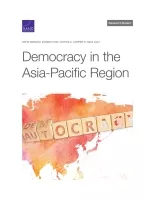Canada will make support for democracy and human rights a foreign policy priority, said Prime Minister Justin Trudeau.
Support for democracy and human rights should be “a core priority in Canada’s international engagement,” he wrote in in a formal Mandate Letter to Mélanie Joly, the new Minister of Foreign Affairs, including by:
Working with the Minister of International Development, establish a Canadian centre to expand the availability of Canadian expertise and assistance to those seeking to build peace, advance justice, promote human rights, inclusion and democracy, and deliver good governance….
 Trudeau used a closed-door session of the Biden administration’s Summit for Democracy to promoted his government’s initiatives, including a future plan to create a centre to support democracy [akin to the US-based National Endowment for Democracy] and another initiative to fight election meddling, CBC News adds:
Trudeau used a closed-door session of the Biden administration’s Summit for Democracy to promoted his government’s initiatives, including a future plan to create a centre to support democracy [akin to the US-based National Endowment for Democracy] and another initiative to fight election meddling, CBC News adds:
There are also funding commitments — $5 million for the UN Human Rights commission; $1 million each to the Global Equality Fund supporting LGBTQ people, the International Religious Freedom Fund, and a global civil-society protection fund; $3 million for future technology projects that help democratic initiatives; and for a 2022 international anti-corruption meeting.
Much thinking has already taken place around Canada’s possible role in democracy promotion, former foreign minister Chrystia Freeland wrote for Policy Options Politiques. In 2005, Thomas Axworthy, [the National Democratic Institute‘s] Leslie Campbell and David Donovan published a paper with the IRPP on the idea of a “Democracy Canada Institute.” In 2009, a government-appointed panel that included Axworthy and Campbell delivered a report on the idea of creating a democracy promotion agency.
Illiberal international
There is bipartisan support for advancing democracy, said Isobel Coleman, USAID Deputy Administrator for Policy and Programming. “I see bipartisan support on an anticorruption agenda; bipartisan support on human rights; clear bipartisan support for the work that USAID does around the world in promoting democracy and rule of law and good governance and anticorruption work,” she told a Washington Post symposium (above).
 The Summit at least made start in combatting the “illiberal international,” said Stanford University’s Michael McFaul. “There’s been lots more coordination between the autocrats of the world. Mr. Putin is running a very sophisticated game plan for decades now. It started with the Orange Revolution in 2004 where he is putting massive resources into propaganda, into media, into cyber, to undermine democracy and to support his ideology,” he told The Post’s David Ignatius.
The Summit at least made start in combatting the “illiberal international,” said Stanford University’s Michael McFaul. “There’s been lots more coordination between the autocrats of the world. Mr. Putin is running a very sophisticated game plan for decades now. It started with the Orange Revolution in 2004 where he is putting massive resources into propaganda, into media, into cyber, to undermine democracy and to support his ideology,” he told The Post’s David Ignatius.
From Buy-in to Action
The Biden administration achieved at least two of its goals at the Summit for Democracy: it sounded the alarm on the state of global democracy, which has suffered precipitous declines over the last 15 years, and it signaled that there is a global audience interested in discussing strategies to tackle this decline. The summit hashtags had over 1 billion impressions on social media, with significant engagement in Uganda, India, Taiwan, and Japan, as well as in the United States and Europe, notes Marti Flacks, Director and Senior Fellow with the CSIS Human Rights Initiative.
The Summit for Democracy “exceeded expectations reassuring our democratic allies and sending a needed message to our adversaries,” NED President and CEO Damon Wilson told POLITICO’S NatSec Daily. The event had highlighted “new ideas, new resources, and new energy” to help restore democratic momentum, he added.
For all of the noble sentiments and sensible commitments, nothing said or done at the summit looked as though it could remotely be enough to turn the tide in the fight between democracy and autocracy that Biden has so often invoked, argues Yascha Mounk, Senior Fellow with the Council on Foreign Relations. Thus the clearest lesson of the summit is a disheartening one: to rise to the stakes of this moment, the United States will need to go well beyond what even a president who genuinely cares about the fate of global democracy is currently willing to countenance.
 Asian democracies such as Japan and South Korea have the resources to assist developing countries to build both governmental and nongovernmental democratic capacities, adds Sook Jong Lee, a Senior Fellow with South Korea’s East Asia Institute. For U.S. allies and democracies in Asia, the renewed U.S. effort to promote democracy presents opportunities to collectively balance Chinese influence.
Asian democracies such as Japan and South Korea have the resources to assist developing countries to build both governmental and nongovernmental democratic capacities, adds Sook Jong Lee, a Senior Fellow with South Korea’s East Asia Institute. For U.S. allies and democracies in Asia, the renewed U.S. effort to promote democracy presents opportunities to collectively balance Chinese influence.
New terminology is needed that reflects this global reality and fissures among democracies: “corrosive democracy”—the intentional manipulation of the instruments of democratic governance for the political purpose of restricting the government’s operational capacity, adds former NED staffer Georges A. Fauriol, Senior Associate with the CSIS Americas Program, This acknowledges the symbiotic relationship between the economic universe of corrosive capitalism and the true political characteristics of the self-stylized “illiberal democrats” and strategically and media-savvy autocrats, from Russia’s Vladimir Putin to Nayib Bukele in El Salvador.
Countering digital authoritarianism
As the illiberal use of technologies threatens human rights worldwide, American and Canadian practitioners, researchers, and members of the private sector and civil society will discuss strategies used by authoritarian states, the Montreal Institute for Genocide and Human Rights Studies (MIGS) writes.
Speakers
- Introduction: U.S. Consul General Ana Escrogima, U.S. Consulate General Montreal
- David Kaye, clinical professor of law at the University of California, Irvine, and former UN special rapporteur on the promotion and protection of the right to freedom of opinion and expression
- Chris Walker, vice-president for Studies and Analysis, National Endowment for Democracy
- Suzanne Nossel, chief executive officer of PEN America
- Ron Deibert, director of the Citizen Lab at the Munk School, University of Toronto
- Inga Kristina Trauthig, research manager and senior research fellow, Center for Media Engagement (University of Texas).
Tuesday, January 18, 2022. 11 a.m. – 12:15 p.m. RSVP








